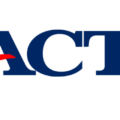 The ACT is changing in two majors ways starting in 2025.
The ACT is changing in two majors ways starting in 2025.
First, students will have the ability to choose whether to take the Science section, which up until now has been a required section of the test. English, Reading, and Math remain will continue as the core sections of the ACT test that will result in a college-reportable score. Like the Writing section, which is already optional, Science will be offered as an additional section. This means students can choose to take the ACT, the ACT plus Science, the ACT plus Writing, or the ACT plus Science and Writing.
As a result, the ACT Composite score will be the average of the English, Reading, and Math scores. The Composite and section scores will continue to be reported on the same 1-36 scale, and those behind the ACT believe that colleges will continue to use these scores as “powerful indicators of achievement and college readiness.”
Students will also continue to be able to take the test online or with paper and pencil.
Second, ACT has also reduced the length of the test by up to one-third, depending on which version of the test students take. The new core test will last just two hours, compared to three hours for the current test. To achieve this, the test will include shorter passages on the Reading and English sections and fewer questions in each section (44 fewer questions total), which will allow students more time to answer each question.
Both of these major changes, along with other enhancements to modernize the test, will roll out starting with National online testing in Spring 2025 and then for school-day testing in Spring 2026. So, members of the high school Class of 2026 and later are most impacted by these changes to the ACT.
As part of the announcement, Janet Godwin, ACT CEO shared, “I’m thrilled about the future and the opportunities that lie ahead for us and those we serve. Our unwavering commitment to meeting the evolving needs of students and educators drives us forward. These enhancements are just the beginning, and we are eager to continue revolutionizing how we prepare learners for future challenges and opportunities. For more than 65 years, ACT has embraced innovation, and we are focused forward on delivering our vision to transform college and career readiness pathways so that everyone can discover and fulfill their potential.”
ACT, which was formally part of a non-profit organization, was purchased by the private equity firm Nexus Capital Management in April.
David Blobaum, co-founder of Summit Prep, notes that the ACT’s Science section was always named incorrectly. “How many students have chosen not to take the ACT because it has a so-called ‘Science’ section? Countless. Incorrectly naming this section probably cost the ACT a billion dollars (or more) over its 70 year history.” Blobaum argues the Science section should have been named “Reading Graphs and Tables” long ago. “That’s more accurate and less scary.”
In addition, Blobaum shared that he “can’t see any way that students won’t score higher on the new ACT tests. If the content is the same (and the ACT has promised it will be) and students get more time per question…then how will students not do better?”
Only time will tell whether student performance on the ACT actually improves. Also up in the air are which colleges will continue to require or recommend the newly-optional Science section and which colleges will be perfectly happy to require or recommend the ACT with only its new core sections. Stay tuned.



